IRP Seminars will be in person meetings this semester, unless otherwise noted. Connection information for virtual seminars will be sent out, in advance, to the IRP Seminar email list.
September 5, 2024
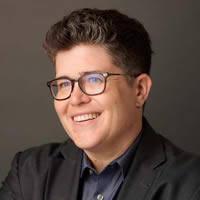
The Access to Justice Crisis from Ordinary Americans’ Perspectives
Kathryne Young, Associate Professor, Law School, George Washington University
12:15–1:30pm, 5131 Nancy Nicholas Hall
In half of U.S. households, at least one person faces a civil justice problem each year. Most will never reach a court or a lawyer. Indeed, most will never be solved at all. Unresolved civil legal problems cause financial instability, housing insecurity, and poor mental and physical health—burdens disproportionately borne by Black, Latinx, multiracial, and low-income Americans. Sociologist and legal scholar Kathryne Young investigates the social and structural barriers to achieving access to justice in the U.S. by asking how ordinary people think about and experience civil legal challenges, from consumer debt to landlord-tenant disputes. Her mixed-method inquiry allows her to look at access to justice through an intersectional lens and to better understand people’s lived experiences—about which the legal scholarship tells us very little—to enable design of solutions that meet people where they are at.
September 12, 2024
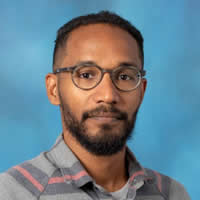
The Impact of Federal Housing Policies on Racial Inequality: The Case of the Federal Housing Administration
Omer Ali, Assistant Professor, Department of Economics, University of Pittsburgh
12:15–1:30pm, 8417 William H. Sewell Social Sciences Building
The Federal Housing Administration (FHA) began insuring residential mortgages in 1935 in response to the Great Depression. The agency is credited with expanding home-ownership among American households. There is growing evidence, however, that the FHA discriminated against African Americans. This talk estimates county-level effects of the FHA’s mortgage insurance program between 1935 and 1939 on racial disparities in home-ownership and home values. I find that FHA insurance had a negligible effect on the racial gap in home-ownership, but an expansionary effect on the racial gap in home values by 1940. Linked census data provides suggestive evidence that White (but not Black) households were more likely to leave central cities for suburbs in counties where the FHA was more active. Findings point to the FHA’s role in accelerating White suburbanization.
Recording of this seminar is available on the IRP YouTube Channel.
September 19, 2024

The Glass Is Half-Full: The Safety Net for Low-Income Women, Before and After Childbirth
Taryn Morrissey, Professor, Associate Dean of Research at the School of Public Affairs, Department of Public Administration and Policy, American University
12:15–1:30pm, 8417 William H. Sewell Social Sciences Building
This talk will examine how employment, earnings, and safety net program benefits vary in the year before and after childbirth for low-income women in Virginia, a state lacking public paid family leave. Administrative data from 2016-2021 is used to examine disruptions in low-income women’s employment and earnings in the year before and the year after childbirth and the extent to which cash, nutrition assistance, and tax credits together make up for lost earnings. On average, mothers take about six months away from work, with substantial variation. Challenges include nutrition benefits being ineligible for non-food expenses (e.g., rent) and cash from tax credits received as an annual lump sum rather than disbursed throughout the year.
Recording of this seminar is available on the IRP YouTube Channel.
September 26, 2024
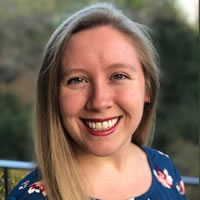
The Triple Burden: Women of Low Socioeconomic Status and the Binds of Caretaking, Work, and College
Kaylee Matheny, Assistant Professor, McCourt School of Public Policy, Georgetown University
12:15–1:30pm, 8417 William H. Sewell Social Sciences Building
Decades of scholarship have examined the “double burden,” or women’s dual responsibilities of economic provision and domestic labor. But little research has explored whether higher education adds yet a third burden to women’s obligations. Dr. Matheny uses nationally representative, longitudinal surveys and matched interviews to examine students’ educational trajectories, spanning their early teens through late 20s, in particular, why women of low socioeconomic status experience significantly more stop-outs in college. Longitudinal interviews reveal this is due to the “triple burden”: the simultaneous expectations of paid work, caretaking, and college for low-SES women. This research emphasizes the importance of interdisciplinary and mixed methods scholarship as well as the need for an intersectional understanding of the life course.
Recording of this seminar is available on the IRP YouTube Channel.
October 3, 2024
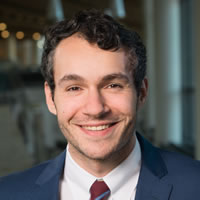
Competition and Fraud in Health Care
Jetson Leder-Luis, Assistant Professor, Questrom School of Business, Boston University
12:15–1:30 pm, 8417 William H. Sewell Social Sciences Building
The U.S. government provides health insurance to citizens but relies on private companies to perform care. These companies face incentives to commit fraud, which wastes valuable public resources. Recent research has addressed policy solutions to combat fraud, but less attention has been paid to the relationship between market structure and opportunities to commit fraud. This research presentation considers the role of competition in promoting or inhibiting fraud, using the Medicare durable medical equipment (DME) market as an example. New data on enforcement and prescribing behavior can help identify suspicious and fraudulent providers of DME. Increased competition and lower prices appear to benefit suspicious firms over legitimate ones.
Recording of this seminar is available on the IRP YouTube Channel.
Wednesday, October 9, 2024
Lunch & Learn, 3470 Social Science

The Effects of WIC Physical Presence Requirements on Benefit Redemption: Evidence from Remote Services during the COVID-19 Pandemic
Clay Fannin, National Poverty Fellow, Institute for Research on Poverty, University of Wisconsin–Madison, in residence at the Office of the Assistant Secretary for Planning and Evaluation (ASPE)
12:15–1:30pm, 3470 William H. Sewell Social Sciences Building
During the COVID-19 pandemic, the federal requirement that certification appointments for the Special Supplemental Nutrition Program for Women, Infants, and Children (WIC) take place in person was relaxed. While eliminating WIC’s in-person requirement for certification appointments can ease compliance burdens and improve program uptake, remote-only appointments may have exacerbated barriers to benefit redemption. Uneven implementation of WIC physical presence requirement waivers across local WIC agencies and variation in household exposure to in-person appointments facilitate an investigation into whether physical presence waivers influenced benefit redemption. The findings illuminate potential policy and practice implications for the program.
October 10, 2024

Exploring Variation in Cash Assistance: How Lump Sum Versus Regular Payments Relate to Families’ Food Insecurity and Psychological Well-Being
Samantha Steimle, National Poverty Fellow, Institute for Research on Poverty, University of Wisconsin–Madison, in residence at the Office of the Assistant Secretary for Planning and Evaluation (ASPE)
12:15–1:30pm, 8417 William H. Sewell Social Sciences Building
Cash assistance represents a promising solution to the harmful correlates of being low income for parents and children. Questions remain, however, regarding optimal cash delivery mechanisms. Lump sum payments deliver cash assistance all at once—potentially immediate economic and psychological relief—but these effects are likely to fade as the money is spent. In contrast, a series of smaller payments delivered regularly may have smaller initial effects on family well-being but have the potential to last longer. This talk investigates how the lump sum, economic stimulus payments and monthly Child Tax Credit (CTC) payments delivered during the pandemic relate to two indicators of family well-being—food insecurity and psychological distress—in the months following receipt.
Recording of this seminar is available on the IRP YouTube Channel.
October 17, 2024

What Is Precarious Employment and How Does It Impact Health and Health Inequity?
Anjum Hajat, Associate Professor, Department of Epidemiology, University of Washington
12:15–1:30 pm, 8417 William H. Sewell Social Sciences Building
Co-Sponsor: Center for Demography and Ecology
Precarious employment (PE), which encompasses the power relations between workers and employers, is a well-established social determinant of health. Often characterized by unstable employment, low-paying jobs, and a lack of rights and protections for workers, PE is more common among women, immigrants, and racialized workers. In this seminar, Dr. Hajat will present recent evidence of the individual and intergenerational health impacts of PE, with a focus on data from the United States. Importantly, she will also discuss the role of PE in maintaining and perpetuating socioeconomic health inequities. She will conclude with a discussion of future research directions to better understand the impact of PE on worker’s health and well-being.
Recording of this seminar is available on the IRP YouTube Channel.
October 24, 2024

Closing the Quality Gap: Improving Outcomes for Pregnant Black Medicaid Enrollees
Kathryn Thompson, Assistant Professor, Departments of Community Health Sciences and Health Law, Policy, and Management, Boston University
and IRP Visiting Poverty Scholar
12:15–1:30pm, 8417 William H. Sewell Social Sciences Building
Dr. Thompson’s seminar explores the critical impact of hospital quality on outcomes among Black and White Medicaid enrollees in the United States. Utilizing a nationally representative sample, the discussion will highlight how access to high-quality hospitals significantly reduces instances of adverse outcomes, particularly among Black pregnant persons. Dr. Thompson’s presentation will delve into the systemic barriers that contribute to unequal access to high-quality care and examine the resulting racial disparities in maternal and infant health. Attendees will gain insights into policy recommendations aimed at ensuring equitable healthcare access, improving outcomes, and fostering healthier communities across diverse populations.
October 31, 2024
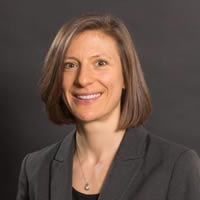 Migration Status and Poverty among Immigrants and their Children
Migration Status and Poverty among Immigrants and their Children
Claire Altman, Associate Professor, Department of Health Sciences and Truman School of Government and Public Affairs, University of Missouri
12:15–1:30 pm, 8417 William H. Sewell Social Sciences Building
Co-Sponsor: Center for Demography and Ecology
Drawing on nationally representative data from the 1996–2008 Survey of Income and Program Participation (SIPP), Dr. Altman will examine associations between migration status and poverty for immigrants and their children. Her research demonstrates how poverty estimates vary depending on the method used to assign migration status. Comparing migration status assignments using logical imputation or direct survey approaches, for example, yield strikingly contrasting conclusions among immigrant adults. Results for children also reveal nuanced associations between family migration status and poverty that are masked when family migration status is assigned using only citizenship status. Findings call for greater attention to migration status measurement and have significant implications for policies designed to support immigrant families’ well-being.
November 7, 2024
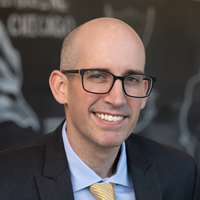
Poor Neighborhoods, Bad Schools? A High-Dimensional Model of Place-Based Disparities in Academic Achievement
Geoffrey Wodtke, Professor, Department of Sociology and Associate Director, Stone Center for Research on Wealth Inequality and Mobility, University of Chicago
12:15–1:30pm, 8417 William H. Sewell Social Sciences Building
Co-Sponsor: Center for Demography and Ecology
Disparities in academic achievement between students from high- and low-poverty neighborhoods are often attributed to unequal school environments. Using nationally representative data from over 18,000 students and measuring more than 170 characteristics of the schools they attend this talk will examine how the elementary schools serving students from different socioeconomic backgrounds vary in terms of their composition, resources, instructional practices, climate, and effectiveness. The findings reveal that schools serving higher- versus lower-poverty neighborhoods differ significantly in their demographic composition, but exhibit relatively little variation in most other aspects of the school environment. Furthermore, results suggest that equalizing schools along these dimensions would have only a small impact on closing achievement gaps. This research highlights the need for policy solutions that address broader structural inequalities driving student segregation and achievement disparities beyond the school setting.
Recording of this seminar is available on the IRP YouTube Channel.
November 14, 2024 – Cancelled – Rescheduled for February 20, 2025

The Prevalence and Mental Health Impacts of Militarized Policing in American Cities
Gerard Torrats-Espinosa, Assistant Professor, Department of Sociology, Columbia University
Co-Sponsor: Center for Demography and Ecology
The killing of Breonna Taylor in 2020 brought national attention to no-knock search warrants, a policing practice that allows law enforcement officers to enter premises unannounced. Despite being among the most dangerous and aggressive policing tactics, no-knock search warrants and forceful residential police raids remain under-researched. Building on the literature on the social costs of aggressive policing, this talk will present findings from a multi-city study analyzing all forceful residential search warrants executed over a decade by three large US urban police departments. Discussion will include evidence of racial and ethnic gaps in neighborhood-level exposure to forceful residential search warrants, then focus on the community-level mental health effects of such policing practice. Findings contribute to a growing body of literature highlighting the unintended and adverse consequences of aggressive policing in communities of color and among disadvantaged populations.
November 21, 2024 – No Seminar APPAM Conference
November 28, 2024 – No Seminar Thanksgiving
December 5, 2024
 Public Nutrition Programs and the Lasting Impacts of Early Life Lead Exposure
Public Nutrition Programs and the Lasting Impacts of Early Life Lead Exposure
Nicholas Sanders, Associate Professor, Brooks School of Public Policy and Department of Economics, Cornell University
12:15–1:30pm, 5131 Nancy Nicholas Hall
Lead poisoning in children, which can impair physical and cognitive growth, remains a large public health concern. Removing all lead exposure vectors may be impossible, as legacy lead persists in sources like pipes, paint, and contaminated soil. This presentation explores an alternate pathway by which society can reduce the damages of lead – through improvements in childhood nutrition. Matching early childhood test score data to geolocated birth records, historical information on exposure to lead, and access to social food programs provides insight into how nutrition-related welfare programs might help mitigate long-term impacts of childhood lead exposure.